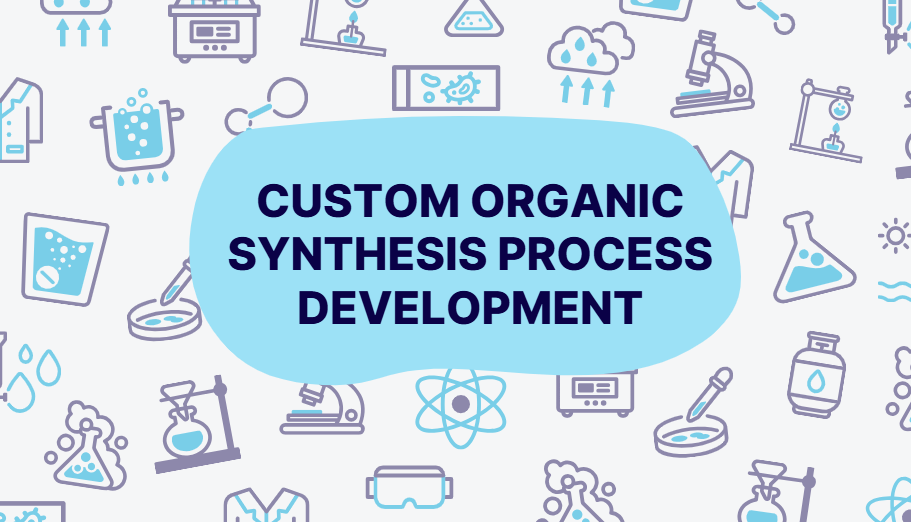Custom polymer synthesis has revolutionized material science, enabling the creation of polymers tailored for specific industrial, environmental, and medical applications. As we step into 2024, advancements in this field are not just meeting the increasing demand for innovative materials but are also pushing the boundaries of what is possible. This blog explores how custom polymer synthesis is shaping material science today, its methods, applications, and the trends defining its future.
What is Custom Polymer Synthesis?
Custom polymer synthesis involves the design and creation of polymers with precise molecular structures and functional properties to fulfill unique application needs. This process is a deviation from mass production, focusing on individual solutions for industries ranging from biomedicine to aerospace.
Key Features of Custom Polymer Synthesis
- Tailored Properties: Achieving specific attributes like thermal stability, elasticity, or biocompatibility.
- Sustainability: Creating eco-friendly materials to replace conventional plastics.
- Scalability: Adaptable for small-scale research and large-scale industrial production.
How Custom Polymer Synthesis Transforms Material Science
1. Precision in Material Engineering
Custom synthesis allows fine-tuning of properties such as molecular weight, branching, and functional groups. This precision enables innovations like ultra-thin membranes for filtration or conductive polymers for electronics.
2. Cross-Disciplinary Applications
Polymers synthesized for specific needs are central to advancements in fields such as:
- Healthcare: Drug delivery systems, biocompatible implants.
- Energy: Lithium-ion battery electrolytes, solar panel coatings.
- Aerospace: Lightweight, high-strength composites.
3. Addressing Environmental Challenges
Biodegradable and recyclable polymers are essential in combating plastic pollution. Custom polymers are also used in water purification and air filtration systems.
The Process of Custom Polymer Synthesis
The journey from concept to material involves:
1. Design Phase
- Application Understanding: Identifying specific requirements.
- Molecular Blueprinting: Crafting a chemical structure to meet desired properties.
2. Synthesis Phase
Methods of Polymer Synthesis:
- Step-Growth Polymerization: Creates high-strength materials like polyamides.
- Chain-Growth Polymerization: Efficient for creating high-molecular-weight polymers.
- Living Polymerization: Ensures precise control over chain length and distribution [1].
3. Functionalization
Incorporating functional groups post-synthesis enhances the polymer’s utility, such as improving solubility or thermal resistance [2].
4. Characterization and Validation
Techniques like spectroscopy, chromatography, and thermal analysis ensure the polymer meets the defined specifications [3].
Applications of Custom Polymer Synthesis in 2024
Healthcare Innovations
- Drug Delivery Systems: Polymers enable controlled and targeted drug release.
- Biodegradable Scaffolds: Used in tissue engineering and regenerative medicine.
Electronics and Technology
- Conductive Polymers: Used in flexible electronics and smart devices.
- Insulators: For enhanced performance in microprocessors and chips.
Energy and Sustainability
- Solar Cells: Light-absorbing polymer films improve efficiency.
- Batteries: Polymers enhance energy density and reduce degradation.
Environmental Solutions
- Bioplastics: Addressing the global plastic waste crisis.
- Filtration Systems: Custom polymers for water purification and desalination.
Advantages of Custom Polymer Synthesis
1. Superior Performance
Custom polymers outperform generic alternatives, offering enhanced durability, flexibility, and functionality.
2. Cost-Efficiency
Though the initial cost might be higher, the long-term benefits and performance outweigh traditional materials.
3. Sustainability
Tailoring polymers with degradable properties supports the global shift toward a circular economy.
Challenges in Custom Polymer Synthesis
- Complexity of Design: Precision requires expertise and advanced technologies.
- Cost of Development: High-end synthesis processes can be expensive.
- Scalability Issues: Transitioning from lab-scale synthesis to industrial production is often challenging.
Future Trends in Custom Polymer Synthesis
1. Green Polymer Chemistry
Eco-friendly processes and renewable raw materials are becoming standard. Polymers synthesized through green methods reduce environmental impact [4].
2. Smart and Responsive Polymers
Polymers that respond to stimuli such as temperature, pH, or light are paving the way for innovations in healthcare and soft robotics.
3. Integration with AI
Machine learning is being used to predict polymer properties and optimize synthesis protocols.
4. Advanced Characterization Tools
Emerging techniques allow for a more in-depth analysis of polymers, ensuring precise quality control.
Case Studies: Custom Polymer Synthesis Success Stories
Case 1: Biodegradable Polymers for Packaging
A leading FMCG company adopted custom biodegradable polymers, reducing plastic waste by 40%.
Case 2: Conductive Polymers in Wearable Devices
A technology firm developed ultra-flexible polymers for sensors in wearable health monitors, enhancing comfort and functionality.
Conclusion
Custom polymer synthesis is at the heart of modern material science, enabling tailored solutions that drive innovation across industries. In 2024, its role in shaping a sustainable, technologically advanced world is undeniable. By leveraging the expertise of companies like ResolveMass Laboratories Inc., industries can unlock the full potential of this transformative technology.
- Custom Polymer Synthesis Services
- Polymer Characterization and Analysis
- Advanced Material Testing
Contact Us to discuss how we can tailor solutions to meet your polymer needs.
References
- Matyjaszewski, K. Controlled/living radical polymerization: Current trends. Chemical Reviews. DOI: 10.1021/cr000098q
- Peppas, N. Functionalized polymers in drug delivery. Advanced Drug Delivery Reviews. DOI: 10.1016/j.addr.2005.01.002
- Chatterjee, A. Characterization techniques for polymers. Polymer Testing. DOI: 10.1016/j.polymertest.2018.05.004
- Anastas, P., & Eghbali, N. Green Chemistry in polymers. Nature Chemistry. DOI: 10.1038/nchem.2063

